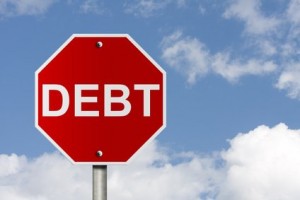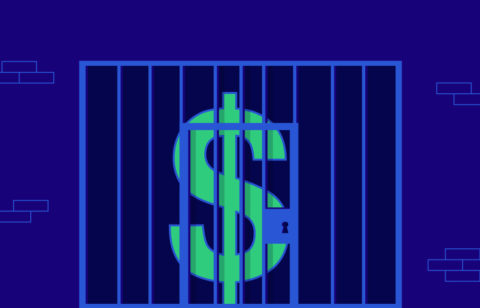I don’t know about you but I see the word debt used several times a day. It’s a hot topic right now because of the fiscal cliff debate that’s been going on in our U.S. Congress for the past several months. We know our country owes trillions of dollars in debt but that number is so large it’s impossible for me and I think many other people to even comprehend.
The Wikipedia definition
The online encyclopedia Wikipedia defines debt as ” A debt is an obligation owed by one party (the debtor ) to a second party, the creditor.” While that’s a nice, simple definition, it doesn’t really do the word justice. There can be good debt, bad debt, public debt, gambling debt and credit card debt. Each one of these is a form of debt but each tends to have different meanings. We might read about public debt – those trillions of dollars the US government owes – but that doesn’t really touch our daily lives. On the other hand, credit card debt can be very real and very ugly if you accumulate too much of it.
How much debt is too much debt?
If you’re wondering if you have too much debt, you can find out by calculating your debt-to-income ratio. The way you do this is fairly simple. First, add up all of your monthly income, whether it’s from a paycheck, your investments or whatever. Next, add up all of your recurring monthly debt such as your credit card debt, payments on personal loans, your mortgage payment or rent, your auto loan and so forth. Now, divide your debt by your total revenue. For example, if your total income is $3,000 a month and your total debts are $1,500, your debt-to-income ratio would be 50%, which incidentally is way too high.
What is a good debt-to-income ratio?
Different lenders have different ideas as to what is a good debt-to-income ratio but most financial experts say that 36% or lower would be a good one. If you have a very high income, a ratio of 40% to 45% might be considered good. But in most cases, the lower the percentage, the better.
If you have too much debt
You may already know you have too much debt without calculating your debt-to-income ratio. If you’re receiving harassing phone calls from credit card companies or debt collectors, you know you have too much debt. So the question becomes what to do? There are several possible answers. First, you could cut your spending and use the money to begin paying down your debts. Second, you could find ways to earn more money. If neither of these alternatives seems attractive, a third one is to declare bankruptcy. A fourth option is called debt settlement.
Debt negotiation equals debt settlement
You may have heard the term debt negotiation and wondered what it means. The simple explanation is that you contact your creditors and attempt to negotiate settlements. This means the term debt negotiation is basically synonymous with debt settlement as the whole purpose of debt negotiation is to settle debts. However, for debt settlement to work, you will need to stop making payments on your debts such as credit card debts for probably six months. If you’re a good negotiator you should be able to get your debts reduced by 40% to 50%. Of course, you’ll have to have the money required to pay off the settlements. In other words, if you could settle a $5,000 debt for $2,500, you would need to have the $2,500 available to immediately wire to your creditor or mail in the form of a cashier’s check.








